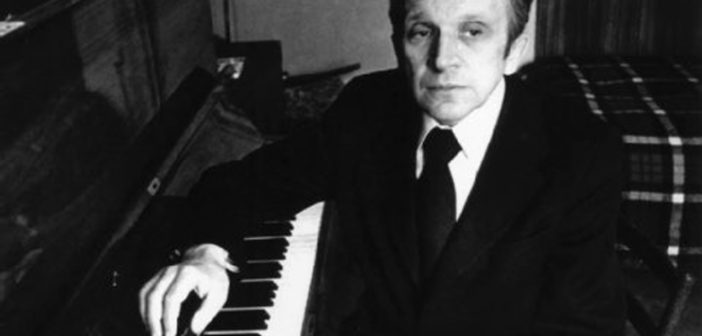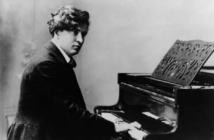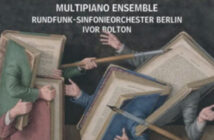This page is also available in / Cette page est également disponible en:
![]() Francais (French)
Francais (French)
****/**
 The 2019 centenary of the composer’s birth has exhumed several dozen unknown works on record, enabling us to form a broader understanding of his preoccupations. The essential works in this present batch date from the Second World War. The piano quintet of 1944, fervently played by Olga Scheps and the Kuss Quartet, calls to mind Shostakovich’s stupendous quintet, dated 1940. Of the two, the Russian composer sounds more Jewish than the Polish Jew, such was his alarm at genocidal antisemitism. Weinberg’s quintet, premiered by Emil Gilels and a Bolshoi quartet, is less emphatic, though also highly strung and with an unbearably tragic Largo movement. Although there are only 45 minutes on this Sony release, each minute is worth double (****).
The 2019 centenary of the composer’s birth has exhumed several dozen unknown works on record, enabling us to form a broader understanding of his preoccupations. The essential works in this present batch date from the Second World War. The piano quintet of 1944, fervently played by Olga Scheps and the Kuss Quartet, calls to mind Shostakovich’s stupendous quintet, dated 1940. Of the two, the Russian composer sounds more Jewish than the Polish Jew, such was his alarm at genocidal antisemitism. Weinberg’s quintet, premiered by Emil Gilels and a Bolshoi quartet, is less emphatic, though also highly strung and with an unbearably tragic Largo movement. Although there are only 45 minutes on this Sony release, each minute is worth double (****).
 The 1945 piano trio, issued by Genuin with Shostakovich’s parallel 2nd piano trio, is played intensely by the Marvin Trio, a young German ensemble. Some nuances get lost in translation but the loneliness of a Polish exile in Stalin’s Russia, awaiting dread news of his family, is fully conveyed and the middle movements give vent to overwhelming, raw rage (***).
The 1945 piano trio, issued by Genuin with Shostakovich’s parallel 2nd piano trio, is played intensely by the Marvin Trio, a young German ensemble. Some nuances get lost in translation but the loneliness of a Polish exile in Stalin’s Russia, awaiting dread news of his family, is fully conveyed and the middle movements give vent to overwhelming, raw rage (***).
 Naxos has done more than any label these past two decades to bring Weinberg to public attention. Its latest releases are of quite late works – a pair of self-repeating chamber symphonies from 1987 and 1990 (**) and two flute concertos from 1961 and 1987 (***). The soloist is Claudia Stein, principal flute of the Staatskapelle Berlin, and the conductor is another Barenboim pal, David Robert Coleman (Barenboim himself has show no particular interest in Weinberg). The orchestra is from Szcecin, Poland.
Naxos has done more than any label these past two decades to bring Weinberg to public attention. Its latest releases are of quite late works – a pair of self-repeating chamber symphonies from 1987 and 1990 (**) and two flute concertos from 1961 and 1987 (***). The soloist is Claudia Stein, principal flute of the Staatskapelle Berlin, and the conductor is another Barenboim pal, David Robert Coleman (Barenboim himself has show no particular interest in Weinberg). The orchestra is from Szcecin, Poland.
Rather like Shostakovich in his three pairs of concertos, Weinberg has more to say in his sprightly first work than in the second. Stein’s playing is never less than appealing. Even more intriguing are 12 flute pieces that Weinberg wrote in 1947 and orchestrated four decades later. They show a major composer finding his voice just as Stalin is about to choke it off. Amazing music.
Sign on to the blogfeed: www.slippedisc.com
Visit the website: www.normanlebrecht.com
Read my new book, Genius and Anxiety
This page is also available in / Cette page est également disponible en:
![]() Francais (French)
Francais (French)












